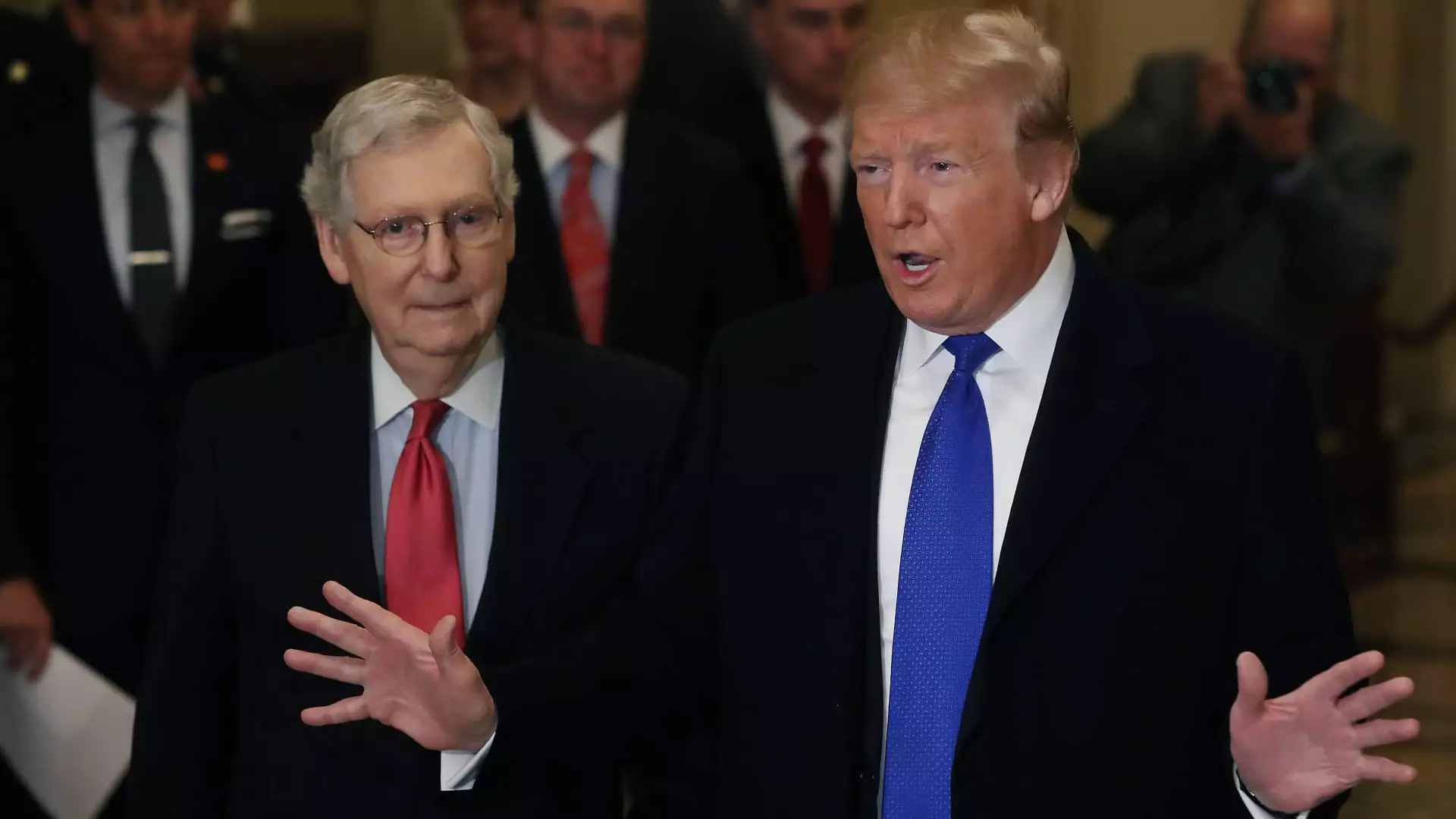In a notable divergence from his party’s leadership, Republican Senator Mitch McConnell has publicly expressed concerns regarding President Donald Trump’s expansive tariff strategies. Through a recent op-ed, McConnell highlighted the potential ramifications these policies could have on American families and businesses, suggesting that initiating trade disputes with foreign partners might inflate prices domestically. This critique marks a significant moment, as it showcases a senior political figure within the Republican Party willing to address disputes with the President’s economic initiatives.
Unpredictable tariff policies can create volatility in the marketplace, leading to cascading effects that can ultimately jeopardize both consumer confidence and industrial growth. McConnell reflects this sentiment, articulating that Trump’s tactics raise severe anxieties for American industries and their workforce. Such a perspective is vital, as it adds nuances to the often one-dimensional narrative surrounding national trade policies. By arming himself with this viewpoint, McConnell positions himself as a mediator within the divided Republican Party, attempting to reconcile commerce with political ambitions.
Implications for Kentucky’s Economy
McConnell’s analysis is particularly relevant to his home state of Kentucky, which stands at the crossroads of agricultural output and industrial production. The senator underscores the risks posed to thousands of farming operations and the automotive sector, industries intricately linked to international markets. For instance, with 75,000 farms in Kentucky exporting goods, and a substantial automobile industry that relies heavily on global supply chains, the implications of tariff-induced inflation are likely to resonate deeply within this community.
Moreover, the bourbon whiskey industry illustrates the precarious position of local producers amidst protectionist measures. By producing 95% of the world’s bourbon, Kentucky distillers contribute significantly to the economy; any increase in operational costs due to tariffs threatens their viability and profitability. McConnell emphasizes that high tariffs can ultimately lead to increased costs for consumers, thereby incentivizing a backlash against such policies from constituents.
The Political Landscape and Future Prospects
The friction between McConnell and Trump encapsulates a broader struggle within the Republican Party. Traditionally rooted in principles of free trade, many in the GOP are grappling with the protectionist rhetoric that Trump has championed. The potential delays in tariffs on specific nations, such as Canada and Mexico, indicate a pragmatic approach to appeasing international relations while also attending to the needs of American workers. However, such pauses are temporary solutions to deeper economic dilemmas.
Though McConnell has maintained a delicate balance by endorsing Trump despite previous disagreements, his recent op-ed reflects both a strategic caution and a principled stance advocating for a more nuanced economic policy. As discussions continue around tariffs and international trade, the complex interplay of economic theory, political allegiance, and local realities necessitates ongoing scrutiny. Moving forward, it remains critical for policymakers to consider the long-term consequences of their strategies, ensuring that both American interests and global relationships are preserved.


Leave a Reply